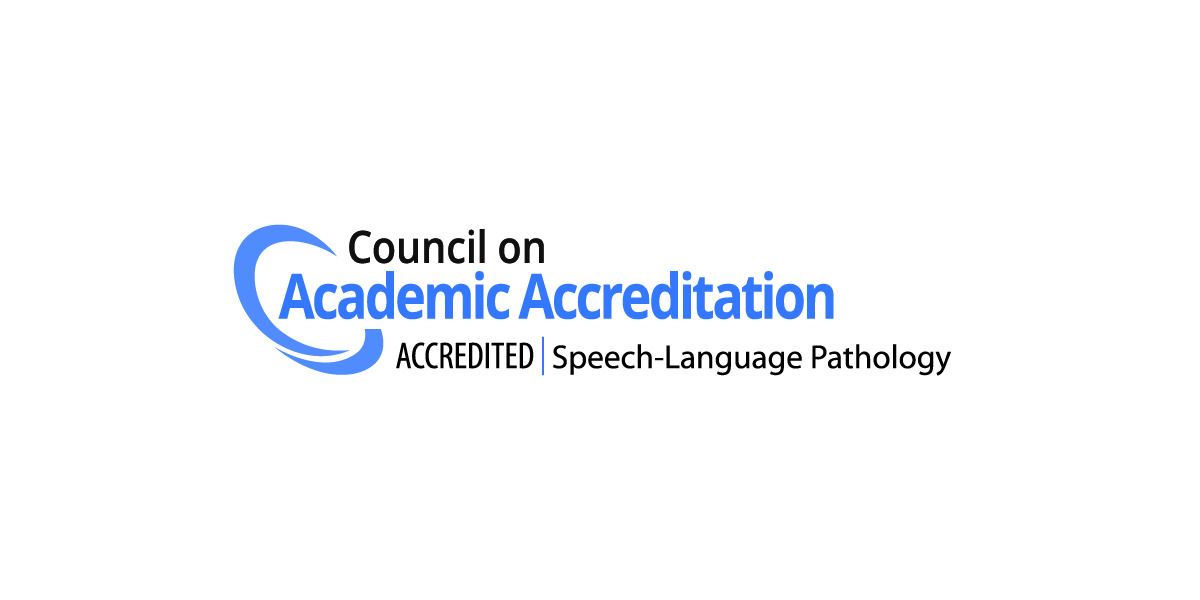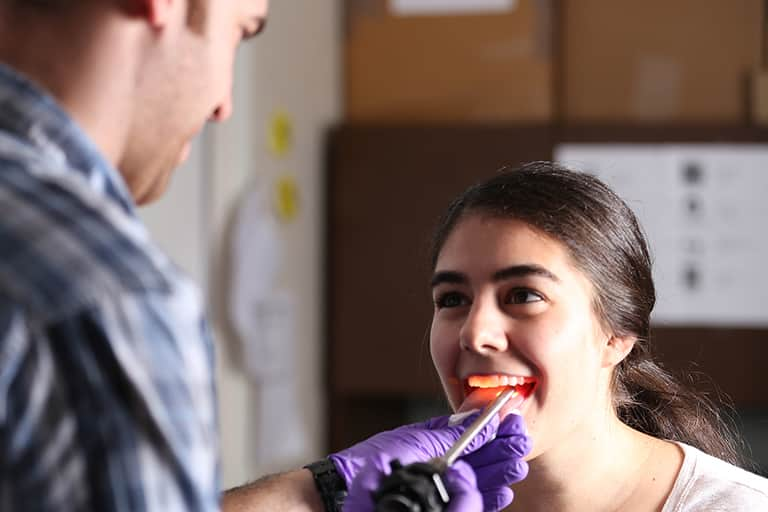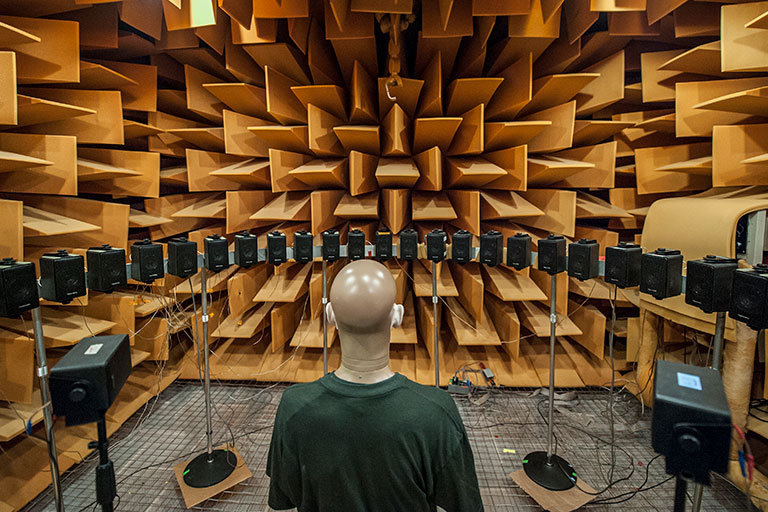Masters of Arts in Communicative Sciences and Disorders
The Communicative Sciences and Disorders Master's Program from Michigan State University will not only give you the coursework needed to learn necessary skills but will also allow you to participate in problem-based learning designed to promote critical thinking skills and leadership.
MSU's clinical training is community-based. We have a network of over 100 off-campus facilities including public schools, hospitals, nursing homes and private clinics, both here in Mid-Michigan and throughout the state, to support the clinical training of our master's students.
Our clinical supervisors are working in the field as speech-language pathologists and therefore opportunities for you to apply knowledge learned in the classroom directly to real-world clinical life is abundant. Additionally, our program offers two career-oriented tracks: Plan A is the thesis track, and Plan B is the non-thesis track. Students electing to pursue a thesis will have the opportunity to develop and conduct original research under the mentoring of faculty with substantial scholarly experience. While the non-thesis track offers options for comprehensive elective clinical coursework.
As a student in the program, you will be able to use the resources of MSU - a world leader in research with nationally ranked academic units, impressive libraries, a beautiful large campus, a pioneering record in sustainability, exciting athletics and an impressively diverse academic community. Becoming a Spartan is to gain entry into one of the largest and most productive group of alumni networks in the world.
The M.A. program in CSD offers exciting opportunities to learn from and work with internationally renowned scientists in the fields of communicative sciences and disorders. Our master's program is designed to attract excellent students from diverse backgrounds and train them to become clinicians and leaders in the field of communicative sciences and disorders.
| On-Time Program Completion Rates |
|---|
| Reporting Period | # Completed within Expected Time Frame | % Completed within Expected Time Frame |
Recent Year
(2024-2025) | 27 | 100% |
1 Year Prior
(2023-2024) | 28 | 97% |
2 Years Prior
(2022-2023) | 30 | 97% |
| Praxis Pass Rates |
|---|
| Period | # Taking the Exam | # Passed Exam | % Passed Exam Rate |
Recent Year
(2024-2025) | 27 | 26 | 96% |
1 Year Prior
(2023-2024) | 22 | 20 | 91% |
2 Years Prior
(2022-2023) | 25 | 24 | 96% |
The Master of Arts (M.A.) education program in speech-language pathology {residential} at Michigan State University is accredited by the Council on Academic Accreditation in Audiology and Speech-Language Pathology of the American Speech-Language-Hearing Association, 2200 Research Boulevard, #310, Rockville, MD 20850, 800-498-2071 or 301-296-5700.

The logo does not apply to undergraduate or non-entry level doctoral programs in communication sciences and disorders. Logo use shall be subject at all times to revocation and withdrawal by the CAA when, in its sole judgment, its continued use would not serve the best interests of CAA or the public.
Federal regulations require MSU to publicly disclose, for each educational program designed to meet the educational requirements for a specific professional license or certification required for employment in an occupation (or advertised as meeting those requirements), information about whether program completion would meet those requirements in a state. These public disclosure requirements apply to all programs, regardless of their modality (i.e., on-ground, online, and hybrid programs).
MSU discloses the required information for its Master of Arts, Communicative Sciences and Disorders on pages 29 and 30 of the table at https://edge.sitecorecloud.io/michigansta4a14-msu70a4-prod718c-8cd0/media/Project/MSU/AACC/Docs/state-authorization/PLC_Disclosure_Document_2025_03_10.pdf.
All current and prospective students are encouraged to contact the applicable professional licensure/certification boards in their respective states for additional information regarding professional licensure/certification requirements, including, without limitation, information regarding any non-educational requirements (such as work experience, background clearance, examinations, and/or ASHA Certificate of Clinical Competence).
The information in the table should not be construed as guaranteeing that any particular professional licensure/certification authority will approve a student’s application; nor should the information in the table be read to imply that other requirements for professional licensure/certification do not exist or that other requirements for professional licensure/certification have been determined to have been met by MSU’s program/course, or that any necessary approvals for clinical or other experiential learning placements are secured by virtue of a student’s enrollment at MSU.
State professional licensure requirements are subject to change at any time. For Michigan Department of Licensing and Regulatory Affairs, Michigan Board of Speech-Language Pathology, please see https://www.michigan.gov/lara/0,4601,7-154-89334_72600_72603_27529_53664---,00.html
If you need assistance or have any questions, please contact comdis@msu.edu
The M.A. program in CSD is a 51 credit degree and is 5 continuous semesters beginning each fall. You may complete the M.A. program by choosing one of two plans. A decision to enroll in Plan A or Plan B must be communicated to the Program Director no later than October 31st of the first fall semester in the program.
LEARN MORE ABOUT THE PLANS
Fall 2025 Informational Session
Discover how Michigan State University’s Master of Arts in CSD can advance your career. Join us to learn about program details, admissions, and opportunities for graduate study.
Questions?
Questions?
For additional information on the Communicative Sciences and Disorders Master's program may be obtained from:
Department of Communication Sciences and Disorders
Michigan State University
1026 Red Cedar Road
Oyer Speech and Hearing Building
East Lansing, MI 48824
comdis@msu.edu


